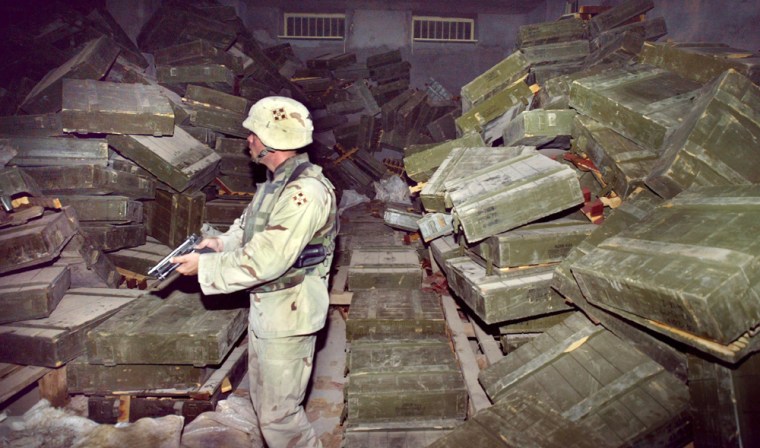“After more than 18 months, the WMD investigation and debriefing of the WMD-related detainees has been exhausted,” wrote Charles Duelfer, head of the Iraq Survey Group, in an addendum to the final report he issued last fall.
“As matters now stand, the WMD investigation has gone as far as feasible.”
In 92 pages posted online Monday evening, Duelfer provides a final look at an investigation that occupied over 1,000 military and civilian translators, weapons specialists and other experts at its peak. His latest addenda conclude a roughly 1,500-page report released last fall.
On Monday, Duelfer said there is no purpose in keeping many of the detainees who are in custody because of their knowledge on Iraq’s weapons, although he did not provide any details about the current number. A U.S. official, who spoke on condition of anonymity, said the ultimate decision on their release will be made by the Iraqi authorities.
Warnings about Saddam’s experts
The survey group also provided warnings.
The addenda conclude that Saddam’s programs created a pool of experts now available to develop and produce weapons and many will be seeking work. While most will probably turn to the “benign civil sector,” the danger remains that “hostile foreign governments, terrorists or insurgents may seek Iraqi expertise.”
“Because a single individual can advance certain WMD activities, it remains an important concern,” one addendum said.
Another addendum also noted that military forces in Iraq may continue to find small numbers of degraded chemical weapons — most likely misplaced or improperly destroyed before the 1991 Gulf War. In an insurgent’s hands, “the use of a single even ineffectual chemical weapon would likely cause more terror than deadlier conventional explosives,” another addendum said.
Read it at the source

































